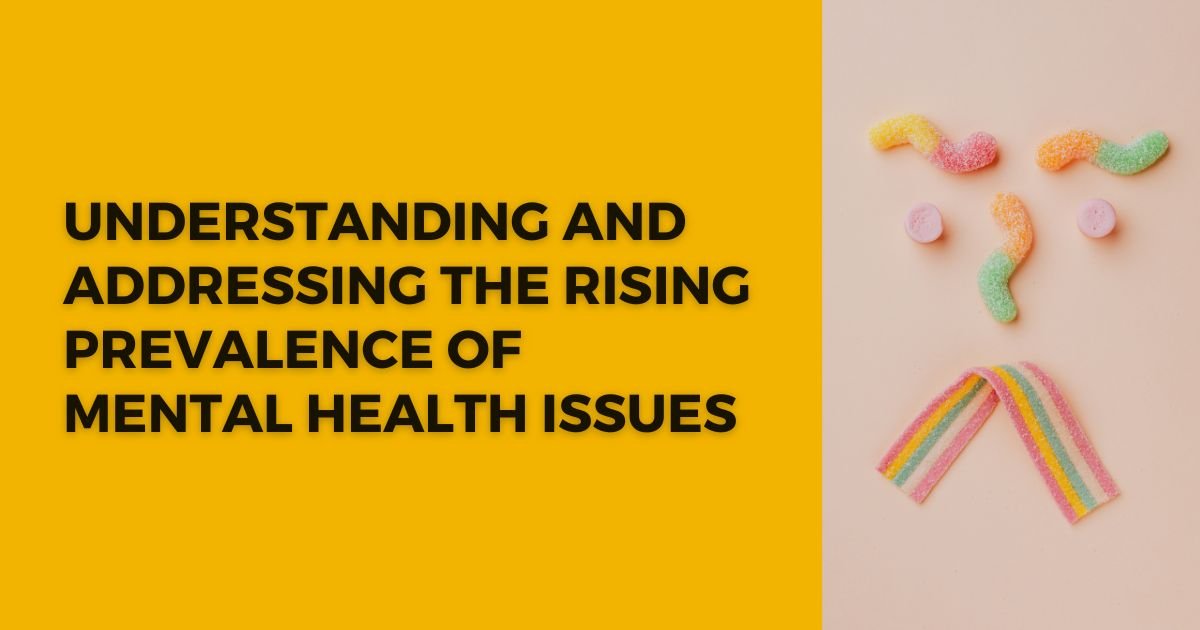In today’s digital age, where connectivity knows no bounds, the rise of online threats calls for heightened awareness and proactive measures to ensure our safety. One such perilous phenomenon is sextortion, a malicious act that preys on individuals through the use of explicit content and intimidation. In this comprehensive guide, we will delve into the world of sextortion, shedding light on its workings, the potential victims, ways to identify and prevent it, and steps to take if you find yourself targeted. By equipping ourselves with knowledge and adopting preventative strategies, we can stand strong against this nefarious practice.
Table of Contents
What Is Sextortion?
Sextortion is a coercive tactic used by malicious individuals to manipulate and exploit others for personal gain. It typically involves the perpetrator obtaining explicit material from the victim, either through coercion, deception, or by hacking into personal accounts. Once in possession of compromising content, the perpetrator then threatens to distribute it or expose it to the victim’s friends, family, or colleagues unless certain demands are met, usually involving monetary payments or further explicit material.
Understanding How Sextortion Works
Sextortion operates on the premise of power and control, leveraging explicit material to extort victims. The process typically unfolds in the following steps:
- Gaining Trust and Establishing Connection: Sextortionists often initiate contact online, masquerading as potential romantic partners, friends, or confidants. They invest time in building rapport, gradually gaining the victim’s trust and establishing an emotional connection.
- Soliciting Explicit Material: Once a level of trust is established, the perpetrator may escalate the conversation, requesting or enticing the victim to share intimate photos, videos, or engage in explicit webcam sessions. They exploit the vulnerability and trust built to convince the victim that such acts are normal or consensual.
- Exploitation and Coercion: With explicit material in their possession, the sextortionist reveals their true intentions. They employ threats, coercion, and manipulation to blackmail the victim, demanding money, further explicit material, or even engaging in harmful or illegal activities. They may threaten to share the explicit content with the victim’s friends, family, or colleagues, causing immense fear and distress.
Understanding Who’s Affected by Sextortion
- Individuals of All Ages and Backgrounds: Sextortion knows no boundaries when it comes to age, gender, or background. People of all demographics can fall victim to this insidious crime. Adolescents and young adults are particularly vulnerable due to their digital fluency and exploration of personal relationships online. However, adults of any age can also be targeted, highlighting the need for awareness and prevention across all age groups.
- Emotional and Psychological Impact: Sextortion can have severe emotional and psychological repercussions for victims. The violation of privacy, the fear of exposure, and the manipulation and control exerted by the perpetrator can lead to feelings of shame, guilt, anxiety, depression, and even suicidal thoughts. The psychological trauma inflicted by sextortion can be long-lasting, affecting relationships, self-esteem, and overall well-being.
- LGBTQ+ Community: The LGBTQ+ community may face unique challenges when it comes to sextortion. In some cases, perpetrators exploit societal stigma and discrimination, using threats of outing someone’s sexual orientation or gender identity to exert control. This can exacerbate the fear and vulnerability experienced by victims within this community, emphasizing the need for inclusive support and resources.
- Support and Resources: For those affected by sextortion, it is crucial to access support and resources to navigate the healing process. Here are some avenues of support:
- Trusted Family and Friends: Reach out to your loved ones for emotional support and understanding. Opening up about the experience can help alleviate the burden and foster a sense of empowerment.
- Reporting to Authorities: Contact your local law enforcement agency to report the incident. They can provide guidance, investigate the matter, and potentially bring the perpetrator to justice.
- Professional Counseling: Seek the assistance of a trained therapist or counselor who specializes in trauma or cybercrime. They can provide a safe space to process emotions, develop coping strategies, and regain a sense of control.
- Support Organizations: Numerous organizations offer assistance to victims of cybercrime and exploitation. These organizations can provide resources, helplines, and support groups to aid in recovery and empowerment.
Understanding How to Spot Sextortion
Sextortion involves the manipulation and coercion of individuals through explicit images or videos, leading to emotional distress and potential harm.
- Unusual Requests or Demands: One of the key indicators of sextortion is receiving unsolicited requests for explicit images or videos. Be cautious if someone you don’t know well asks for intimate content, especially if they become pushy, demanding, or use manipulative tactics to pressure you into complying. Remember, it is your right to set personal boundaries and refuse such requests.
- Coercion and Threats: Sextortion often involves the use of coercion and threats to manipulate victims. Perpetrators may threaten to share explicit material with your friends, family, or colleagues unless you comply with their demands. They may also use emotional manipulation, guilt, or fear tactics to control your actions. Stay vigilant and never give in to their demands.
- Securing Privacy and Digital Footprint: Protecting your privacy is crucial in preventing sextortion. Be mindful of the personal information you share online and adjust your privacy settings on social media platforms. Avoid accepting friend requests or engaging in intimate conversations with strangers. Regularly review your digital footprint and remove any compromising content that could potentially be exploited.
- Trust Your Instincts: Your instincts are powerful tools when it comes to identifying potential sextortion attempts. If something feels off or too good to be true, listen to your gut feeling. Trust yourself and prioritize your safety over any potential risks or pressures imposed by others.
- Reporting Suspicious Activities: If you suspect you are a target of sextortion or have encountered suspicious online behavior, take action immediately. Report the incident to the appropriate authorities, such as local law enforcement or dedicated cybercrime units. By reporting these activities, you contribute to the collective effort in preventing and prosecuting those responsible for sextortion.
What to Do If You Experience Sextortion
It’s important to remember that you are not alone, and there are steps you can take to regain control of the situation.
- Stay Calm and Seek Support: First and foremost, it’s crucial to remain calm and remember that you are not at fault. Reach out to a trusted friend, family member, or counselor who can offer emotional support during this difficult time. Having a support system in place can provide comfort and guidance as you navigate the steps to address sextortion.
- Preserve Evidence: Preserving evidence is essential for building a case against the perpetrator. Take screenshots or photos of any conversations, threats, or explicit material involved in the sextortion. Keep records of dates, times, and any other relevant information that may be useful for law enforcement. This evidence will help authorities in their investigation and potential prosecution.
- Cut Off Communication: Once you realize that you are a victim of sextortion, it’s important to cease all communication with the perpetrator. Do not engage with their demands or threats, as this can further enable their actions. Block their contact and refrain from responding to any messages or attempts to intimidate you. Cutting off communication is a crucial step in regaining control of the situation.
- Report to Authorities: Reporting the sextortion incident to the appropriate authorities is essential. Contact your local law enforcement agency or cybercrime unit to provide them with the evidence you have gathered. They are trained to handle such cases and can guide you through the legal process. Remember, reporting the incident not only helps in your own situation but also contributes to the prevention of future sextortion cases.
- Seek Legal Advice: Consulting with a legal professional experienced in cybercrime can provide valuable guidance and support. They can help you understand your rights, assist with navigating legal procedures, and potentially take legal action against the perpetrator. A lawyer specializing in cybercrime can advocate on your behalf and work towards achieving a resolution.
Protecting Yourself Against Sextortion
While the tactics used by sextortionists can be distressing, there are several proactive steps you can take to safeguard yourself:
- Be Mindful of Your Online Presence: Maintaining a mindful online presence is key to preventing sextortion. Be cautious about the information you share on social media and other platforms. Avoid sharing sensitive personal details or intimate images with individuals you do not fully trust. Remember that once something is shared online, it can be difficult to control its distribution. Be mindful of your digital footprint and ensure your privacy settings are appropriately configured.
- Strengthen Your Online Security: Taking steps to strengthen your online security is crucial in protecting yourself from cyber threats. Use strong, unique passwords for all your online accounts and enable two-factor authentication whenever possible. Regularly update your devices, software, and antivirus programs to ensure you have the latest security patches. Be cautious of suspicious emails, messages, or links that may contain malware or phishing attempts.
- Practice Safe Online Relationships: When engaging in online relationships or dating platforms, exercise caution and maintain healthy boundaries. Avoid sharing intimate photos or videos with individuals you have not met in person or do not fully trust. If someone pressures you to share explicit content, it’s a red flag. Trust your instincts and prioritize your own well-being. Remember, true connections are built on respect, trust, and consent.
- Educate Yourself and Others: Knowledge is a powerful tool in the fight against sextortion. Stay informed about the latest trends, techniques, and scams used by perpetrators. Educate yourself and others on the risks associated with sextortion and the importance of online safety. Share this information with friends, family, and community members to raise awareness and empower others to protect themselves.
- Seek Support and Report Incidents: If you find yourself targeted or victimized by sextortion, it’s crucial to seek support and take action. Reach out to a trusted friend, family member, or counselor who can provide guidance and support. Report the incident to your local law enforcement agency, providing them with all relevant evidence and details. By reporting these incidents, you contribute to building a stronger case against the perpetrators and protecting others from similar harm.
Conclusion
Sextortion is a distressing reality of our digital landscape, but by educating ourselves, staying vigilant, and taking proactive steps, we can reduce its prevalence and protect ourselves and our loved ones. Remember, you are not alone in this fight against online extortion. By spreading awareness and creating a supportive network, we can empower each other and foster a safer digital environment. Stay informed, stay safe, and together, let’s put an end to sextortion.
FAQs
-
What should I do if someone is threatening to share my intimate photos or videos?
If you’re being threatened with the release of intimate content, it’s crucial to prioritize your safety and take immediate action. First, refrain from engaging with the blackmailer and do not give in to their demands. Preserve any evidence of the threats, such as screenshots or messages. Contact your local law enforcement agency to report the incident and provide them with all relevant information. Seek support from a trusted friend, family member, or counselor who can provide guidance and assistance during this challenging time.
-
How can I protect my online privacy and prevent sextortion?
Protecting your online privacy starts with being mindful of the information you share online. Be cautious about sharing personal details or intimate content with individuals you don’t fully trust. Use strong, unique passwords for your accounts and enable two-factor authentication. Regularly update your devices, software, and antivirus programs to ensure optimal security. Stay informed about the latest trends and scams used by perpetrators and educate yourself on online safety best practices.
-
Can I recover control over my intimate content if it has already been shared?
Recovering control over shared intimate content can be challenging, but not impossible. Start by collecting evidence of the dissemination, such as screenshots or links. Contact the website or platform hosting the content and request its removal. If the content is shared on social media, report it to the platform’s support team. Additionally, consider seeking legal assistance to explore further actions, such as sending a cease and desist letter or pursuing legal recourse against the individuals responsible.
-
How can I support someone who has been a victim of sextortion?
Supporting someone who has experienced sextortion is essential. Listen to them without judgment and provide a safe space for them to share their emotions and concerns. Encourage them to report the incident to the authorities and seek professional support, such as counseling or legal advice. Offer your assistance in documenting evidence and contacting relevant parties, if needed. Most importantly, show empathy, understanding, and reassurance that they are not alone in this difficult situation.
-
What can I do to raise awareness about sextortion and help prevent it?
Raising awareness about sextortion is crucial in combating this pervasive issue. Share information about sextortion through social media, community organizations, or local educational institutions. Educate yourself and others about online safety practices and the red flags associated with sextortion. Engage in open conversations about consent, respect, and healthy relationships. By spreading awareness and empowering others with knowledge, we can collectively work towards preventing sextortion and creating a safer online environment.
Remember, your online safety and well-being should always be a top priority. Stay informed, be vigilant, and share the knowledge you’ve gained with others to help protect them from falling victim to sextortion.
To further enhance your understanding of online safety and related topics, we invite you to explore our other informative articles. Click here to access more valuable resources and empower yourself with the knowledge to navigate the digital world with confidence.
Let’s work together to promote a culture of respect, consent, and safety in our online interactions. Together, we can make a difference and foster a secure environment for everyone.













Leave a Reply
View Comments